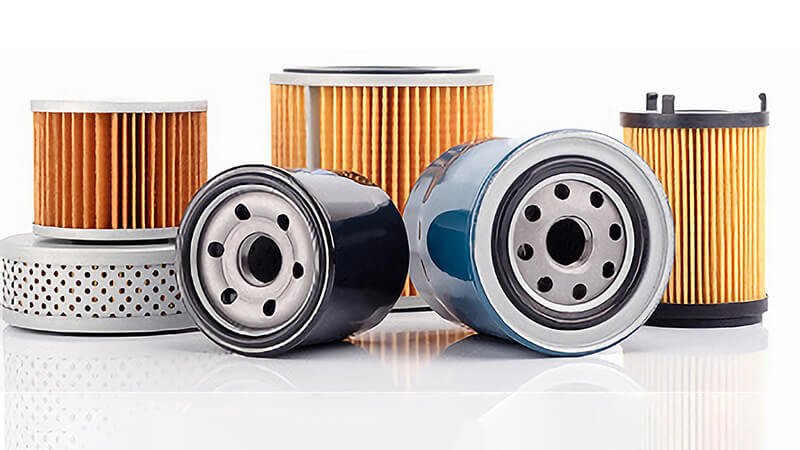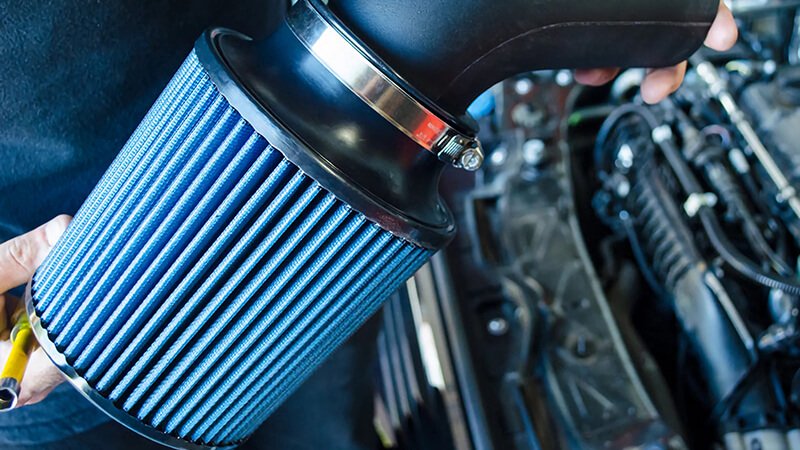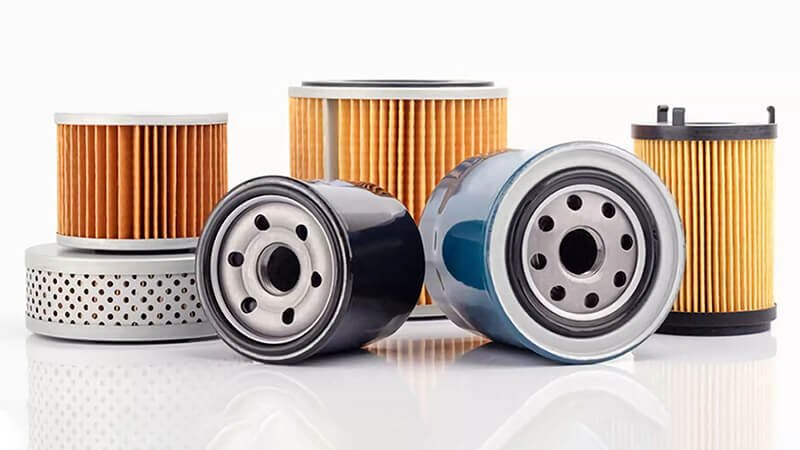Inconsistent parts can damage vehicles, harm reputation, and increase costs. Many managers ignore certification until problems appear, but waiting too long often leads to bigger risks.
Procurement managers should prioritize certified auto parts because certified products guarantee safety, reliability, and compliance. Certified suppliers help reduce risks, build trust, and ensure long-term cost savings.
Certification is not only about meeting standards. It is about building trust with suppliers, ensuring smoother operations, and avoiding costly disruptions. Let’s explore why certified auto parts matter and how they affect procurement decisions.

How Do Certified Auto Parts Reduce Operational Risks?
Faulty or low-quality auto parts create hidden risks. Vehicles can break down more often. Customers lose trust. Procurement managers face endless complaints. Stress builds when deliveries fail during peak demand.
Certified auto parts reduce risks by meeting international standards, ensuring consistent quality, and passing safety tests. They lower failure rates, prevent accidents, and improve operational stability for distributors and wholesalers.
Breaking Down Risk Factors
When I work with suppliers, I see the difference between certified and uncertified parts. Certified suppliers provide reports, audits, and traceability. Uncertified ones often cut corners. Below is a comparison that highlights the gap:
| Factor | Certified Parts1 | Uncertified Parts2 |
|---|---|---|
| Safety Testing | Meets ISO, ECE, or OEM standards | Often no independent testing |
| Failure Rate | Low, predictable, documented | High, inconsistent, unknown |
| Traceability | Full production records available | Limited or missing |
| Legal Protection | Reduces liability in accidents | Higher legal risks |
| Customer Trust | Builds long-term relationships | Damages brand if failures occur |
Certified parts lower risks at every stage of the supply chain. When breakdowns happen, the entire system suffers. I once sourced uncertified filters for trial. Delivery delays and poor performance cost me more than the initial savings. That was the moment I promised myself to only buy certified products. It is a lesson many procurement managers learn too late.

Why Do Certified Auto Parts Improve Supplier Relationships?
Procurement managers often deal with tense negotiations. Price pressure, delivery speed, and quality disputes create friction. Trust is rare and slow to build.
Certified auto parts improve supplier relationships because certifications prove credibility. Certified suppliers show commitment to quality, which makes negotiations easier, builds trust, and supports long-term collaboration.
Exploring the Relationship Advantage
In my experience, suppliers with certifications handle issues differently. They respond faster. They give better documentation. They invest in quality checks because their reputation depends on it. Over time, this builds mutual respect.
| Relationship Aspect | Certified Suppliers | Non-Certified Suppliers |
|---|---|---|
| Negotiation Tone | More transparent, easier to reach agreements | Defensive, more disputes |
| Problem Resolution | Quick, supported by test reports and data | Slow, often excuses instead of fixes |
| Partnership Potential | Long-term focus, consistent performance | Short-term gains, unreliable |
I once worked with a certified brake pad3 supplier in Europe. Their proactive communication impressed me. They even suggested packaging changes to cut shipping costs. That is how partnerships grow. Certifications push suppliers4 to deliver more than just parts—they deliver confidence.

Can Certified Auto Parts Reduce Long-Term Procurement Costs?
Many procurement managers think certified products cost more. At first glance, they do. But real costs are not only purchase prices. Failures, returns, and downtime cost more than the extra dollars saved upfront.
Certified auto parts reduce long-term costs because they minimize failures, lower warranty claims, and prevent expensive recalls. Reliable performance lowers operational waste and builds long-term savings.
Cost Perspective in Practice
I faced this problem early in my career. A distributor convinced me to buy cheaper filters. Within six months, half of them failed. I had to cover replacements and lost credibility with clients. The short-term saving was gone.
Here’s how costs usually compare:
| Cost Category | Certified Parts5 | Uncertified Parts |
|---|---|---|
| Initial Price | Higher upfront | Lower upfront |
| Warranty Claims | Very low | Very high |
| Customer Returns | Minimal | Frequent |
| Downtime Costs6 | Rare failures, predictable maintenance | Frequent breakdowns, high downtime |
| Brand Impact | Strengthened over time | Damaged trust, lost contracts |
When I now choose certified suppliers, my budget plans are stable. I avoid sudden spikes caused by returns or warranty issues. Paying slightly more upfront saves me a fortune in the long run.

How Do Certifications Support Eco-Friendly Procurement?
Environmental standards are no longer optional. Customers demand eco-friendly parts. Governments impose regulations. Procurement managers must adapt or lose contracts.
Certified auto parts support eco-friendly procurement because many certifications include environmental audits. They ensure compliance with green standards, reduce waste, and align with global sustainability goals.
Green Certification in Action
Eco-certifications like ISO 140017 or RoHS compliance8 matter in procurement. They guarantee that suppliers follow safe manufacturing and reduce environmental impact. For me, this is not only about regulation. It is about aligning with customer values.
| Eco Factor | Certified Parts | Uncertified Parts |
|---|---|---|
| Material Safety | Tested for harmful chemicals | Unknown |
| Recycling Standards | Often meet EU/US recycling guidelines | Rarely documented |
| Regulatory Compliance | Clear certification proof | Risk of fines, legal issues |
| Customer Perception | Positive, eco-conscious image | Negative, outdated perception |
I remember a big client who rejected an entire shipment because it lacked RoHS certification. That mistake nearly cost us the account. Since then, I made certifications a rule in my procurement policy. It keeps me compliant and strengthens my brand image as a responsible partner.

Conclusion
Certified auto parts9 do more than meet standards. They protect operations, improve supplier relationships, reduce long-term costs, and support eco-friendly practices. For procurement managers, certifications are not just a badge. They are a strategy for building trust, ensuring quality, and saving money over time.
-
Exploring this resource will help you understand how Certified Parts enhance safety, reliability, and customer trust in your supply chain. ↩
-
This link will provide insights into the potential pitfalls of using Uncertified Parts, helping you make informed procurement decisions. ↩
-
Discover how certified brake pad suppliers enhance quality, efficiency, and cost-effectiveness in supply chain partnerships. ↩
-
Discover how certifications drive suppliers to enhance quality, communication, and innovation, fostering stronger partnerships and trust. ↩
-
Exploring this resource will help you understand the long-term advantages of certified parts over uncertified ones. ↩
-
This link will provide insights into strategies for minimizing downtime costs, enhancing operational efficiency. ↩
-
Exploring this link will provide insights into how ISO 14001 can enhance your environmental management and compliance. ↩
-
Understanding RoHS compliance is crucial for ensuring product safety and meeting regulatory standards in manufacturing. ↩
-
Finding the best oil filer from Runex Auto. ↩













